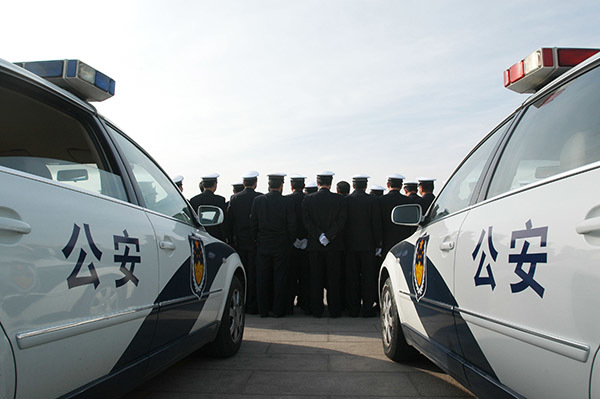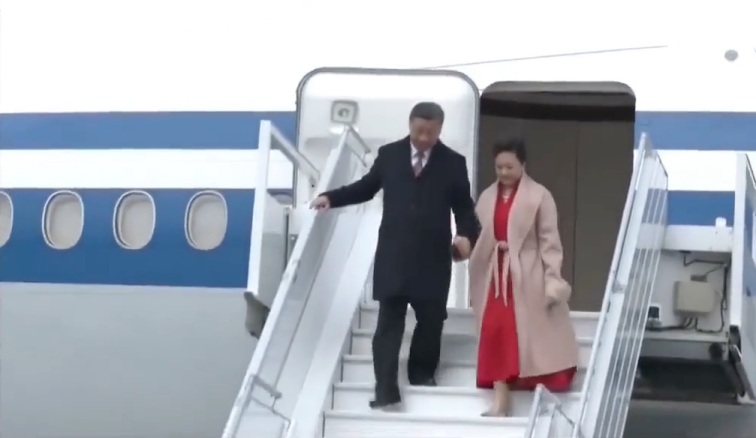Illustration: Intense infighting within Xi Jinping’s central leadership and the military. (Image by People News)
—— The Dilemma of a Dictator: Xi Jinping's Systemic Fate of 'No Successor'
[People News] Recently, the Chosun Ilbo referenced a report from the Washington Times, which stated that a report submitted by the U.S. Congressional Research Service (CRS) disclosed that Chinese President Xi Jinping and his family have hidden assets exceeding $700 million both domestically and internationally. This report not only highlights the distribution of wealth among the upper echelons of the Chinese Communist Party (CCP) but also seems to serve as a 'targeted strike' or political warning from the U.S. against Xi Jinping's administration amid the current U.S.-China rivalry.
The report indicates that this vast fortune is mainly registered under the names of his sister Qi Qiaoqiao, brother-in-law Deng Jiaguo, daughter Xi Mingze, and cousin Qi Ming, among others. This includes an 18% stake in a Chinese rare earth company, investments in technology firms in Beijing, and early shares in the Wanda Group that have yielded significant returns. If verified, this figure will undoubtedly challenge the narrative of Xi as the 'anti-corruption warrior' once again.
However, more alarming than the wealth itself is the systemic anxiety and the profound dilemma of personal rule that this 'wealth flight' reveals.
1. The Dictatorial Trajectory Under the 'Philosophy of Struggle'
Mao Zedong frequently selected successors, including Lin Biao, Hua Guofeng, and Deng Xiaoping, all of whom he elevated and subsequently overthrew. The underlying logic is not about 'unpredictable human hearts' but rather a fundamental concept within the political culture of the CCP—' philosophy of struggle'. This mechanism relies on ongoing 'self-revolution' and the continual purging of old cadres to sustain the legitimacy of governance.
Xi Jinping has evidently inherited this tradition. He continues to eliminate potential threats under the banner of 'self-revolution' through anti-corruption efforts, military purges, reorganising the Central Military Commission, and restructuring the Rocket Force. However, the issue of selecting a successor has turned into a high-risk endeavor within this political framework: once someone is perceived as a 'crown prince', their political aura can pose a threat to the dictator.
2. The absence of a successor is a predetermined outcome of the system.
American scholar Tang Zhixue has noted that Mao Zedong was 'unable to tolerate a successor because he had one', while Xi Jinping finds himself 'unable to select a successor and can only continue to hold power'. Yet, the core of both situations is similar—both operate within a system that rejects power sharing and institutional oversight, compelling the dictator to choose to go it alone until the end.
Xi Jinping's family members have long 'strayed from China'; his brother Xi Yuanping has relocated to Australia, his cousin Qi Mingshen is caught up in a money laundering investigation, and other sisters have also emigrated abroad early on. They either refrain from political involvement or intentionally distance themselves from it, making it challenging to replicate the Castro brothers' model of 'bloodline succession'.
If one must wait for the 'next generation' to mature, even if Xi Mingze receives support, it will take time—this may be yet another reason for the notion of 'working until death'.
3. 'Can a dictator end well?'
From Lenin and Stalin in the Soviet Union to Kim Il-sung and Kim Jong-il in North Korea, and Enver Hoxha in Albania, the vast majority of communist dictators have opted for the path of 'ruling until death'. Their reluctance to pass on power stems not only from a desire to retain control but also from a system that does not permit it. Succession equates to a loss of power, and accommodating others leads to diminished influence.
Only a select few, such as Kǎsītèluó, have been able to smoothly transfer power to their close relatives and retreat behind the scenes in a relatively secure environment. However, this was the case in Cuba—a unique situation where external pressures had reached their peak, and internal consensus was relatively stable.
Can Xí Jìnpíng effectively manage the aftermath? This not only hinges on his health and determination but also on his willingness to break the vicious cycle of 'lifelong dictatorship—political purges—power anxiety.'
4. The illusion of 'victory' and the void in diplomacy
In the official narrative of the Chinese Communist Party, Xí Jìnpíng's phone call with Trump, Lǐ Qiáng's visit to ASEAN, and the military delegation's participation in the Xianghui are all touted as 'diplomatic victories' and signs of 'strategic confidence.' However, the reality is more troubling: tensions in the South China Sea are escalating, the Taiwan issue remains unresolved, and international public opinion regarding China is increasingly negative.
The U.S. intelligence community's investigation into Xí Jìnpíng's personal wealth and the questioning of his regime's legitimacy have moved beyond mere 'anti-communist rhetoric' into a phase of institutionalisation and legislation. This fundamentally signals that the U.S. is engaged in 'comprehensive confrontation with the CCP,' leaving the CCP in a state of diplomatic isolation.
5. Dictatorship is not a choice, but a cage of the system
Xí Jìnpíng may not have actively chosen dictatorship. Like Máo Zédōng, he is simply being propelled forward by the system. The real question is: when one individual has gone too far and there is no successor in sight, how does this system come to an end? Who will conclude the remnants of the 'philosophy of struggle'?
This is a question that, I fear, even Xí Jìnpíng himself cannot answer.
Xi Jinping may find himself in a state of confusion. As a member of the Chinese Communist Party (CCP), he adheres to the principles of Marxism-Leninism, yet he finds himself in a predicament: internationally isolated and unsupported, while facing opposition from various social classes domestically.
At its core, the establishment of communism was intended for violence and struggle, and these ideologies, which contradict human nature, have led to numerous social issues. Only by rejecting these extreme ideologies and returning to more traditional and inclusive values—essentially dismantling the CCP and abandoning the dictatorship—can China achieve more stable governance.
(First published in People News)











News magazine bootstrap themes!
I like this themes, fast loading and look profesional
Thank you Carlos!
You're welcome!
Please support me with give positive rating!
Yes Sure!